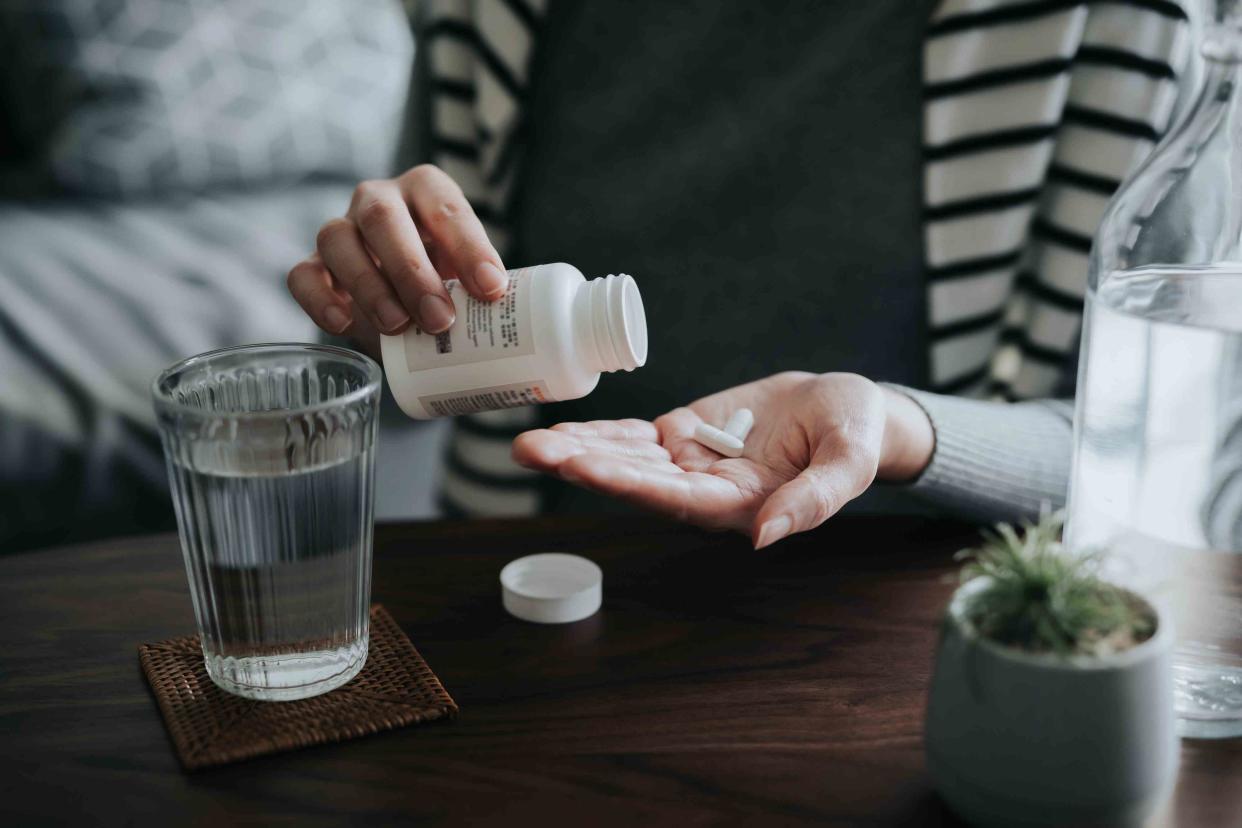What Do L-Carnitine Supplements Really Do?

Medically reviewed by Roxana Ehsani, MS
L-carnitine—also known as levocarnitine—is an amino acid that occurs naturally in the body and is available as a supplement. It is a subtype of the substance carnitine, which aids in metabolism, and can be used to prevent a lack of carnitine.
L-carnitine produces energy in the body and removes toxins from cells. Because of this action, L-carnitine is sometimes taken as a supplement to lose weight and improve physical performance.
This article will discuss the uses of L-carnitine and its role in the body.

L-Carnitine: What It Does and Does Not Do
L-carnitine is a crucial component of energy production in the body. It moves fatty acids into the cells to be converted into energy. L-carnitine also helps to move toxins out of the cells.
It may help with various symptoms of different diseases and conditions, as outlined below.
Alzheimer's Disease
Alzheimer's disease is a progressive, neurodegenerative (wasting of the nerve cells in the brain) condition and the most common type of dementia. It can be treated by preventing the breakdown or increasing the levels of the neurotransmitter called acetylcholine.
Researchers have studied L-carnitine to determine if it can help produce acetylcholine.
A 2020 review of several articles regarding the use of L-carnitine for dementia and Alzheimer's disease found mixed results. Many of the studies reviewed showed favorable outcomes with L-carnitine use, whereas other studies showed minimal to no results.
Further research is needed on the effects of L-carnitine on people with Alzheimer's disease.
Cardiovascular Disease
L-carnitine supplements might aid in cardiovascular health by decreasing inflammation markers and reducing the likelihood of fatal irregular heart rhythms in people with heart disease.
A study from 2017 found benefits from L-carnitine supplementation in people with chronic heart failure. Improvements in several areas of heart functioning, including cardiac output and left ventricular ejection fraction.
Other studies have found that L-carnitine supplementation caused negative effects on the cardiovascular system. Research still needs to be conducted to determine if L-carnitine supplementation is an effective treatment for cardiovascular disease.
Weight Loss
L-carnitine moves fatty acids into the cells to produce energy, so it has been assumed that L-carnitine can help with weight loss. There are some studies that support this theory but more research is needed for conclusions to be drawn.
A literature review that looked at 37 randomized control trials found that L-carnitine decreased body weight by 1.21 kilograms (kg) (2.66 pounds). The weight reduction was primarily seen in people who also ate a low-calorie diet and exercised.
Athletic Performance
Carnitine preserves fuel for the muscles and promotes the breakdown of fats into energy. As a result, some people take L-carnitine supplements to improve their athletic performance.
However, research has shown no proof that L-carnitine supplements improve physical exercise performance.
Fertility
L-carnitine has been used successfully to improve fertility. Research showed that supplementation improved sperm motility.
Other research has shown that L-carnitine supplementation improved ovulation and pregnancy rates in those with polycystic ovary syndrome (PCOS). Those people with PCOS who took the supplement had 64.4% higher ovulation rates. It also improved pregnancy rates and lessened miscarriages in those with PCOS.
L-Carnitine Daily Dosage
Carnitine is made in the liver, kidney, and brain. The body stores 95% of carnitine in the heart and skeletal muscles. The body needs 15 milligrams (mg) per day of carnitine from either outside sources—like food—or the body making its own carnitine.
Most people who eat a diet in both meat and nonmeat sources will consume between 24 and 145 mg of carnitine each day. However, people who follow a vegan diet will likely consume only 1.2 mg per day.
Oddly enough, diet does not seem to influence how much carnitine the body makes. According to the National Institutes of Health, a person who eats a vegan diet still produces 14.4 mg of carnitine per day.
Since carnitine is a supplement the Food and Drug Administration (FDA) does not regulate it, and there are no suggested daily supplementation amounts.
Types of L-Carnitine Supplements
L-carnitine is a type of carnitine. There are several forms of carnitine available for supplementation. They include:
L-carnitine: The most popular and least expensive form of carnitine. Its absorption rate is 14% to 18%.
Acetyl-L-carnitine: This is absorbed in the gut more easily and crosses the blood-brain barrier. As a result, it's more likely to be used in patients with Alzheimer's disease.
Propionyl-L-carnitine: This form of carnitine is used in those with heart and peripheral vascular diseases.
Carnitine is typically taken as an oral supplement but can be given through an intravenous (IV) line.
L-Carnitine Side Effects
There are potential side effects when too much L-carnitine is taken. They include:
Some medications, like those that treat seizures or antibiotics, lower the body's carnitine levels. Taking a carnitine supplement may help avoid this. Always talk to a healthcare provider before starting a carnitine supplement.
L-Carnitine in Food
The best source of L-carnitine is in food. The body's ability to absorb L-carnitine in food is much higher than in a supplement. The best sources (listed from greatest source to lowest) of L-carnitine are:
Beef, including steak and ground beef
Codfish
Chicken breast
Ice cream
Cheese
Summary
L-carnitine is an amino acid that is produced in the body and is found in many animal-based food products. It produces energy and removes toxins from the cells. L-carnitine is often advertised as a supplement for weight loss, to improve physical performance, and more.
Research still needs to be done to confirm the effectiveness of L-carnitine supplementation. Always talk to a healthcare provider before starting a supplement as it may adversely interact with other medications or affect certain conditions.

